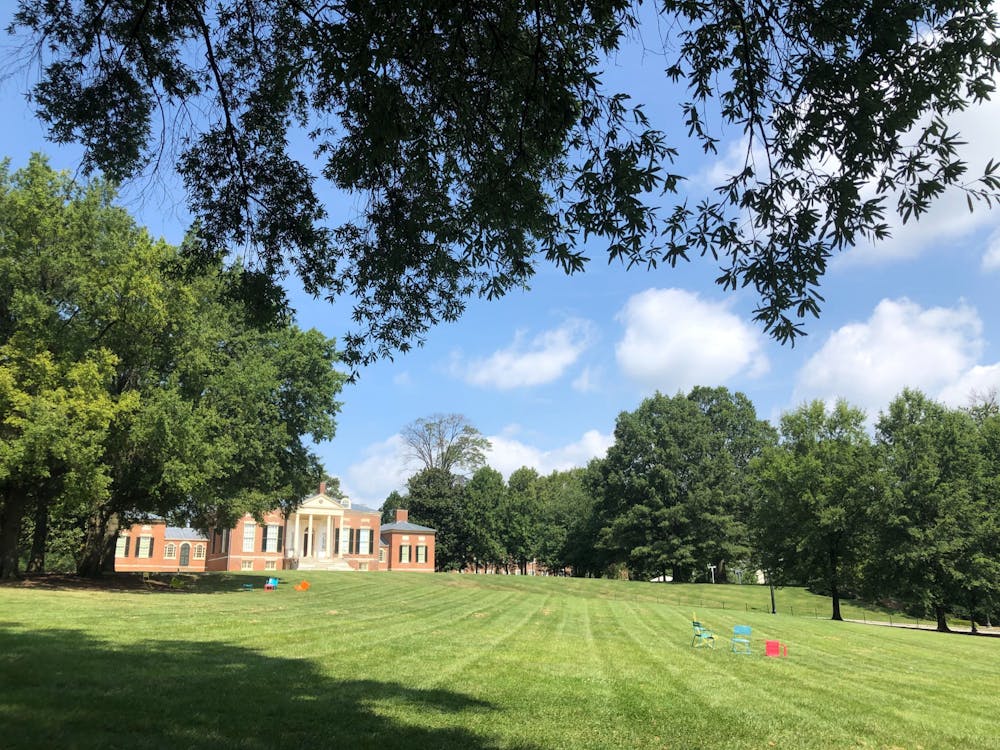Do you feel like you are in class?
It’s the second week of Fall 2020, but the semester still feels as though it hasn’t started. For most of us, learning from home, online classes and student gatherings don't feel the same as in-person interactions. Sitting in front of a screen all day is hardly different from time spent during the summer. The question remains: How should we best adapt to a virtual Hopkins?
The common expectation of us is to go with the flow. We should adapt to online instructions thrown at us by our professors. The belief is that we had the spring to warm up to online learning, thus we should already have the study habits and routines to succeed in the fall.
But this is far from the case for two reasons. First, many students view last semester as a blip. With the pandemic wreaking massive havoc across society, the sudden changes felt more like a temporary solution after a catastrophe. The mandatory Satisfactory/Unsatisfactory system relieved students of most of the stress that came with the uproot, and students expected remote learning to be a short-term arrangement. We all expected that we would return to some form of in-person teaching by this fall, and we felt reassured by the school's early statements in June. No one was expecting another semester of remote learning.
Second, remote learning in Spring 2020 occurred for only half of the spring semester. Relationships with professors had already formed, and base expectations of students had been set. Even if a student struggled with the online modality, they would have had at least half a semester of in-person learning. This issue is particularly acute with current freshmen; they didn't have the opportunity to establish connections within the school in advance. This has left them without the network of peers that upperclassmen can rely on while learning remotely.
Many students are still struggling to cope with the online format of learning and interacting with other students. I am currently in Hong Kong, which is a 12-hour time difference from Baltimore. This leaves me with a mere four-hour daily gap in which to schedule calls with friends and attend lectures. Most of my classes have been reduced to asynchronous lectures, which, as I have previously noted, stifle learning by removing the ability to receive instant answers to questions.
What we need is radical collaboration between both individual students and student groups. We need a central hub for students to share what works and what does not, an open forum for students to exchange ideas. As a member of the Student Government Association (SGA), I have been engaging with many students and would like to share some suggestions here.
Concerning extracurriculars, Hopkins Groups should implement a dedicated channel for groups to share lessons learned from running online events. The section would look a lot like the current feeds page on Hopkins Groups, except that it could be filtered and distilled according to characteristics of the event, such as purpose, size and medium. Other student groups could then use their peers’ advice as a framework for their own events.
With regard to academics, many freshmen have reached out asking for a central hub where they could ask upperclassmen about different classes. Blackboard is an existing tool that should host these valuable discussions.
One initiative that I have been working on is sharing student successes. I started a website where I share habits that have worked for me and other students when adapting to an online environment.
Other areas where students would benefit from receiving help are time management and digital organization. Currently each and every student has to manually enter important dates into their personal calendar from a class syllabus. Imagine how much easier and efficient it would be if the syllabi were distributed as downloadable calendars for students, where all the relevant information could be easily shared with a calendar program, perhaps even within Microsoft Outlook. This would allow students to easily integrate their many due dates among classes.
As a member of SGA, I have been looking into ways to get these initiatives going. Ultimately, I want to help everyone look for creative ways and processes to make things easier for us this semester. I have already spoken to a number of students about their experiences, but if you have any ideas or thoughts, please feel free to reach out to me at cyu60@jhu.edu. I believe that together, we will be able to find solutions to make online learning as effective as possible and pave new practices for this new normal.
Chinat Yu is a sophomore majoring in Computer Science from Hong Kong, China. He currently serves on SGA as a sophomore class senator.





